
Metabolism is the biotransformation that some drugs undergo when the body chemically alters them. Metabolism is an important process that produces the intended therapeutic effects of a certain drug and eliminates the drug from the body through urine or bile. Drug metabolism can be tricky to understand—here’s everything you need to know about how drugs are metabolized in the body.
(more…)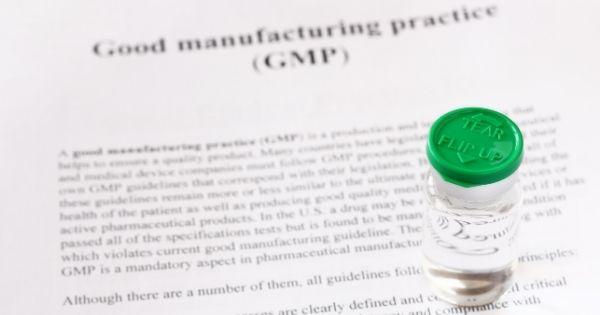
Good manufacturing practice or GMP is a system that ensures products are consistently produced and controlled according to quality standards. The importance of GMP in pharmaceutical manufacturing is to minimize the risks involved in any pharmaceutical process, such as custom radiolabeling, that can put consumers at risk if the proper quality control isn’t in place.
(more…)
Have you ever wondered how pharmaceutical drugs work? The ingredients in a pharmaceutical drug are responsible for the physiological reaction your body has to the medication. Many components are involved in the development of pharmaceuticals, but active pharmaceutical ingredients are the ingredients that produce the intended effects of the drug an individual is taking.
(more…)
The development of a new drug is a complex task and requires many evaluations and decisions before a commercial launch. Some biotech and small pharmaceutical companies are choosing to outsource most or all their drug manufacturing efforts throughout the development phase with a contract manufacturing organization. Choosing the right contract manufacturer is imperative in pharmaceutical manufacturing to ensure product success and overall success in your company’s performance.
Hiring the right contract manufacturing organization (CMO) is a critical decision that puts your supply chain, your brand’s reputation, and patient safety in a partner’s hands. For peace of mind and the best beneficial relationship possible, here’s how to choose the right CMO for your pharmaceutical product.
Know What You Need From Them
The first step to choosing the right CMO is to know exactly what you need. There are many different CMO relationships you can have based on your needs. For instance, a tactical contractor is best for handling a single project or to fill gaps in in-house productions. Working with a preferred provider allows you to establish an ongoing relationship with a CMO partner without giving up too much control over decision-making. On the other hand, a strategic partnership with a CMO is a long-term relationship between you and the CMO to achieve defined business objectives by maximizing the effectiveness of each participant’s resources.
Most pharmaceutical companies are looking for a CMO to support their projects from the development phase, through clinical trials, and on to commercial API pharmaceutical manufacturing and production, as well as drug product formulation, manufacturing, and packaging. For these companies, a strategic partnership is the best option.
Find CMOs
Create a short list of potential CMOs you are interested in working with, and evaluate every CMO on the same characteristics and requirements to eventually single out the right partner. Finding CMOs is as simple as googling local CMOs or asking industry colleagues for references.
Consider Their Experience and Expertise
Considering the capabilities of potential CMOs is a crucial step in the process. You’ll need to determine if your CMO has the capability and expertise necessary to manufacture your product. To do so, consider their expertise and experience. You will not want to be the trial run for your CMO, so inquire about previous experience.
Ask for referrals, read research and reviews, or consider hiring a consultant to help evaluate CMOs. You should also request that your CMO share what kind of key performance indicators they have in place and about their success in meeting client expectations.
When reviewing their expertise, you’ll want to make sure it is in the realm of what you need. This shows they can complete similar needs to your own. But don’t just assume they have the right capabilities based on what they’ve done previously. You’ll still need to be upfront about exactly what you are looking for to make sure they meet your individual expectations and requirements.
Ensure Quality and Compliance Standards
For the sake of safety and your reputation, the CMO you work with should have a good track record. Ensure that they have a strong standing with regulatory agencies like the FDA. Research any recalls they have had in past relationships for gaps in quality and consistent manufacturing.
Don’t forget to request a report of their recent inspections, audits, and investigations. You won’t want to hire a CMO that doesn’t host regular inspections and audit—or one that may be hiding their poor results. This could result in the delay or cancelation of your product shipments due to your CMO’s poor compliance.
Look for Depth
CMOs should offer well-integrated services. Look for CMOs with outsourcing services that scale from formulation and method development to commercial manufacturing and packaging, across a wide range of products, from drug products and APIs to biologics, fermentation, and packaging.
Can they manufacture at various scales inclusive to any production size, from high-selling brands to small scale boutique labs? Can they offer clinical and commercial scale? How well-integrated are all their services to ensure a smooth transition from development to commercial? These are all questions you should be ready to ask a CMO you are considering hiring.
Room for Growth
Like finding a CMO with well-integrated services and depth, the CMO you choose should have room for growth, too. An ideal CMO is one that can grow with your product's success. As such, this CMO should have the proper equipment, staffing, and flexibility to handle your production cycle as it grows.
Confirm Their Resources
Your CMO should have the financial stability to support the lifecycle of your product and a qualified supply chain to protect you from uncertainties. Evaluate their facilities and equipment, and verify their capacity availability against your development and commercial timelines.
Your products should be a top priority for your CMO. If they have other large pharmaceutical partnerships, your smaller orders could end up on the backburner in favor of larger projects.
Signs of a Strong Relationship
Early on, there should be signs of a strong relationship between your business and the CMO. When discussing a possible relationship, take note of how quickly the CMO in question responds to your communications. Do they ever reach out? What is communicating with them like? Clear, open, and consistent communication is key to a successful relationship.
Getting to know the team members can also give you a good indication of how the company works and the values they believe in. Regardless of how well the CMO does their job, if your company values clash, it may not be the best partnership to embark on.
Confidentiality
The issue of confidentiality can be critical when it comes to formulation development. A confidentiality agreement is an absolute must, and it should function to benefit both parties. Evaluate how the potential CMO ensures confidentiality. The CMO should have a system in place thatprecludes the use of client names or initials, locks information in a secure area, and sends the client separate passwords for electronic access to documents.
There are many aspects to consider when determining how to choose the right CMO for your pharmaceutical product. Diligently assessing your needs, the CMO’s abilities, capabilities, reputation, and previous expertise is the best way to create a successful partnership.
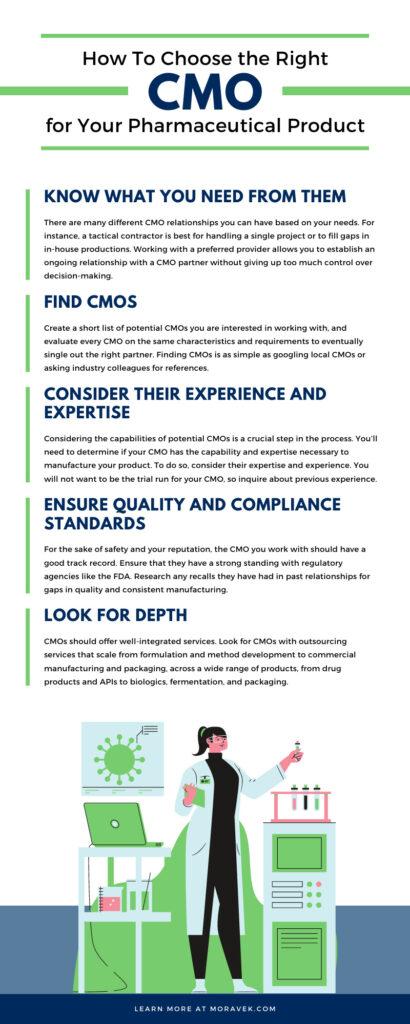

The demand for radioisotopes in medicine is growing at a rapid rate, as radioactive compounds can be used as tracers to understand mass balance and metabolic profiles of drugs. Carbon-14 is a common radioactive isotope that’s used as a tracer in biochemistry methods such as DMPK and ADME studies.
(more…)
The purpose of preliminary testing for new drugs is primarily to determine the safety and efficacy of potential substances, among many other drug characteristics along the way. Preliminary drug testing tests the safety and efficacy in three different phases. Each phase tests for various elements of safety and efficacy across increasing populations in order to obtain more data. Research institutions, big pharma companies, and pharmaceutical suppliers such as radiolabeled compounds suppliers rely on preliminary testing to ensure new drugs are safe and effective.
(more…)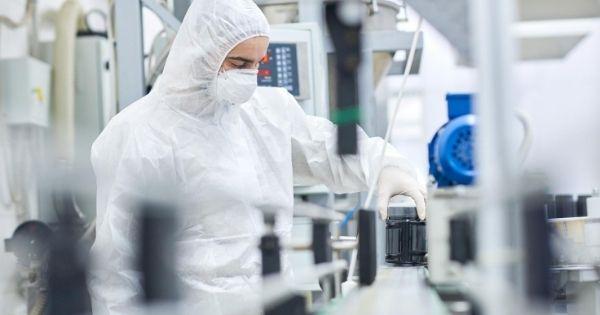
Every workplace presents a unique set of dangers. The pharmaceutical manufacturing industry presents many risks, from manufacturing-specific considerations to pharmaceutical safety hazards. While health and safety can often be difficult to maintain, the pharmaceutical industry must follow safety standards and regulations. From basic protections to highly specified pharmaceutical precautions, pharmaceutical manufacturing safety considerations cannot be overlooked.
(more…)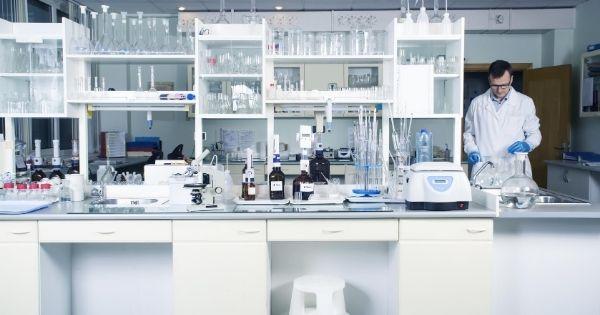
A cleanroom is a controlled environment that has a low level of pollutants such as dust or chemical vapors. Cleanrooms are typically used in manufacturing or scientific research labs, such as a radiochemistry laboratory, where an ISO Class 7 cleanroom is required. The cleanroom classification standard ISO 14644-1 requires specific particle counts, such as ISO 7, to be met to classify the cleanliness level of a cleanroom or area.
(more…)
When patients are administered medications, they trust that the doctor prescribing the drug has confidence in it. A doctor’s faith in a specific drug comes from trusting that the manufacturers used Good Manufacturing Practices (GMP) during clinical trials to ensure the quality and safety of the drug. A GMP certified manufacturer will follow these applications of GMP in clinical trials.
(more…)
Radiopharmaceuticals are a drug grouping of unique medicinal formations. These formations use radioactive isotopes, also known as radioisotopes, in clinical diagnosis, as well as for therapeutic interventions. Common uses of radiopharmaceuticals in clinical diagnoses are to determine the functioning of the liver, lungs, and kidneys, blood flow to the brain, bone growth, the predictive effects of surgery, and to assess changes since treatment. Common uses of radiopharmaceuticals in therapeutic interventions are cancer and tumor treatment, thyroid disease, palliative treatment of bone metastasis, and arthritis.
(more…)
The drug development process is the process of developing, testing, and approving a new drug for pharmaceutical usage. Before a new drug reaches a patient, it must go through five steps to determine if it is a safe and effective means of treating a specific condition. Follow this guide to the drug development process to understand what steps scientists need to take to get a drug out of the lab and into the patient's hands.
(more…)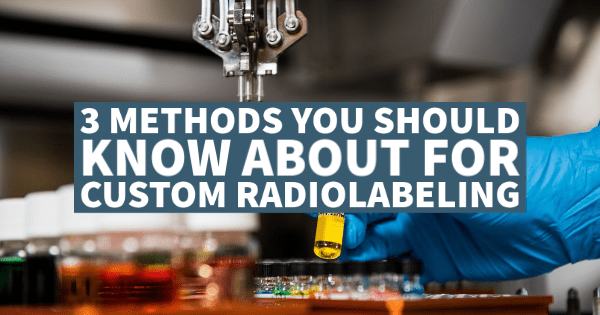
In the United States, there are approximately 810,000 people that work at chemical companies. That number includes those who are in the pharmaceutical sector. Custom radiolabeling is an important part of the work that's done in creating new pharmaceuticals. When it comes to custom radiolabeling compounds, there are a variety of methods that can be used. Here are a few of the methods that can be helpful for preclinical or clinical studies.
(more…)